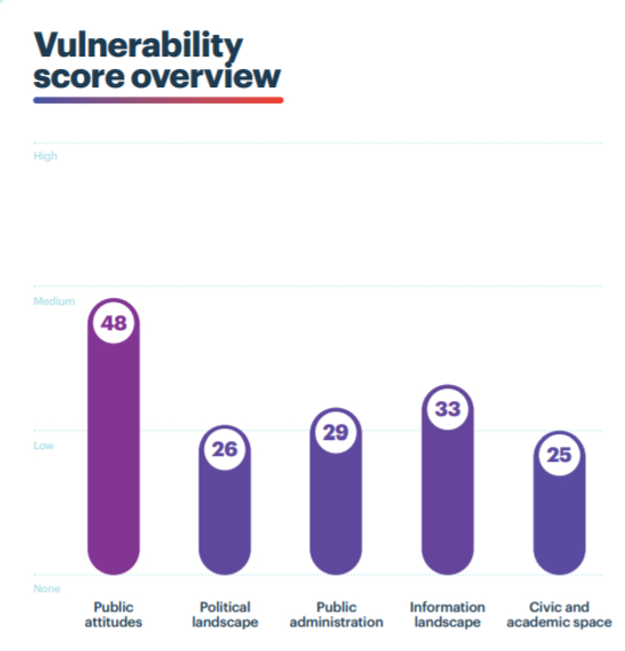Slovakia is one of the most resilient countries to potential attempts by foreign governments or agencies to influence public opinion and institutions in central Europe and the Balkans, new research has shown.
The country was ranked third in the latest Vulnerability Index conducted by the Globsec non-governmental think-tank.
The index measures the level of resiliance towards foreign influence in eight countries: Bulgaria, Czechia, Hungary, Montenegro, North Macedonia, Romania, Serbia, and Slovakia.
It rates each on a scale from 0 to 100 - with 0 the most resilient and 100 the most vulnerable - assessing five key dimensions: public attitudes, political landscape, public administration, information landscape, and academia and the civic sphere.
Slovakia scored 32 out of 100 points. But the group’s experts said the country could do more to improve its score.
“While Slovakia is actively working on building its resilience, we still have a lot of work to do,” said Katarína Klingová, co-author of the index, adding that areas of concern included Slovaks’ pro-Russian attitudes and tendency to believe conspiracy theories and disinformation.
Pro-Russian sentiment
The former of these was where Slovakia was most vulnerable, according to the index.
It suggests that, as in Serbia, Bulgaria and Montenegro, Moscow has been utilising the idea of pan-Slavic unity, language proximity, shared history, and cultural ties, to try and influence thinking in Slovakia.



 Illustrative stock photo (source: Sme)
Illustrative stock photo (source: Sme)
 (source: Globsec Vulnerability Index)
(source: Globsec Vulnerability Index)